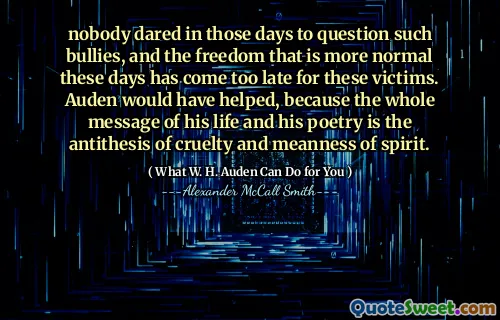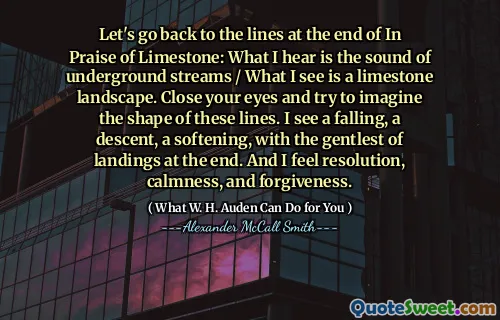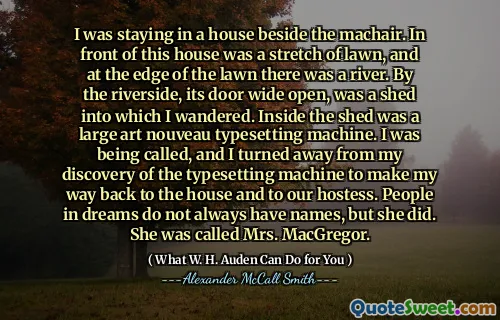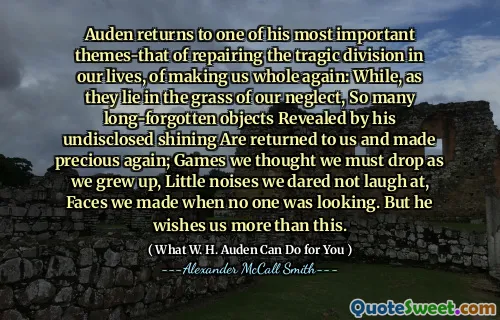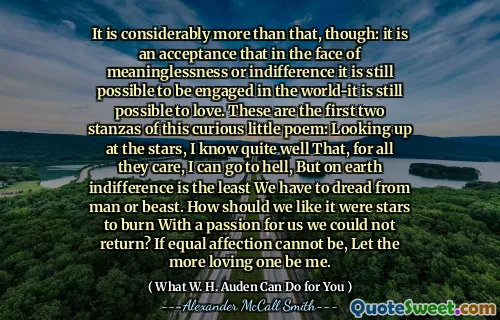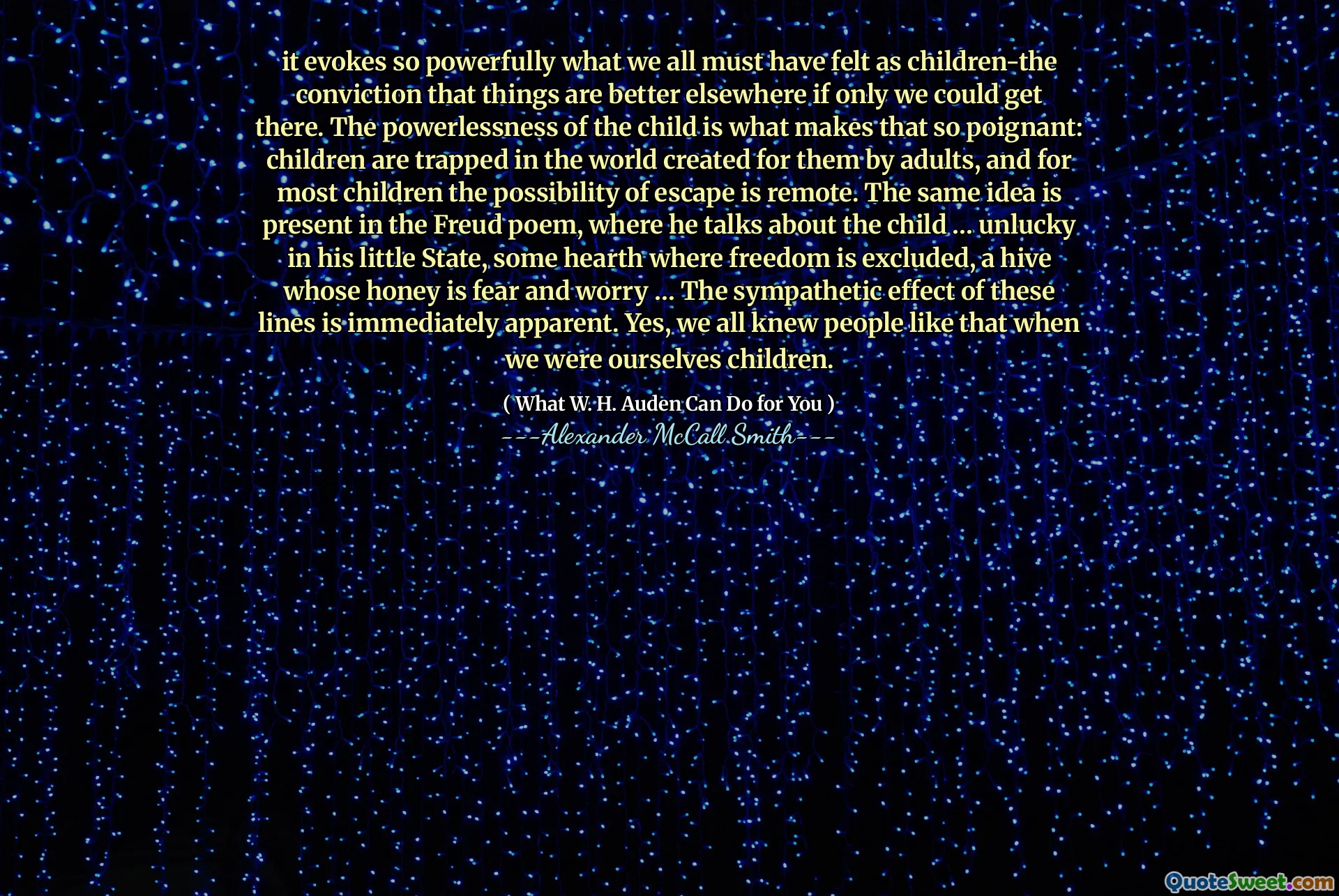
it evokes so powerfully what we all must have felt as children-the conviction that things are better elsewhere if only we could get there. The powerlessness of the child is what makes that so poignant: children are trapped in the world created for them by adults, and for most children the possibility of escape is remote. The same idea is present in the Freud poem, where he talks about the child … unlucky in his little State, some hearth where freedom is excluded, a hive whose honey is fear and worry … The sympathetic effect of these lines is immediately apparent. Yes, we all knew people like that when we were ourselves children.
The quote highlights a universal childhood experience—the longing for a better place beyond one's immediate reality. It speaks to the deep-seated belief that nearly every child possesses: that happiness lies somewhere else, beyond their grasp. This feeling is compounded by their inherent powerlessness, as children often find themselves confined within the boundaries set by the adult world. The desire to escape to a more fulfilling existence is both profound and relatable, echoing sentiments that resonate with many of us.
This theme of yearning and confinement recurs in other literary works, like the poem by Freud, which describes a child's unfortunate circumstances, trapped in a stifling environment. The imagery of a hive filled with fear mirrors the emotional landscape many children navigate. The poignancy of these expressions connects with our own experiences of childhood, affirming that many have encountered similar feelings of isolation and longing. Such reflections underline the deeper emotional struggles inherent in the innocent perspective of a child.

